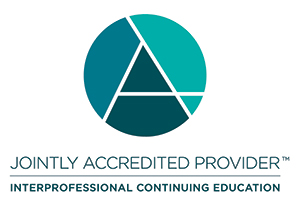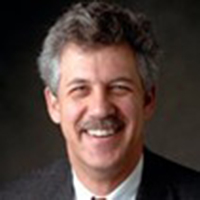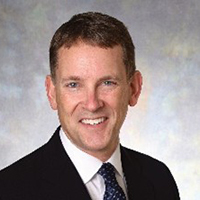Please note: AABB reserves the right to make updates to this program.
Wednesday, August 26, 2026
12:00 – 1:00 PM Eastern Time (please note start time)
Program Number: 26EL-668
Director: Akakpossa Ananou, MS, MA, MPH, CPH, MLS(ASCP)DLM, SBB, FACHE, PMP, Head, Laboratory Department, U.S. Navy Medicine Readiness and Training Command Sigonella, Italy, Sigonella, Italy
Moderator: Jed B. Gorlin, MD, MBA, Chief Medical Officer, Americas Blood Centers, Hopkins, MN
Speakers:
Historically, disasters have not challenged local and regional blood supplies. However, the advent of mass violence events (e.g. mass shootings) have radically changed the role of blood and component products in disaster response. The speakers will discuss scenarios in which the blood supply may be challenged, how blood banks may be taxed during a disaster, as well as strategies for integrating the blood bank into exercises and response. Additionally, the ethical rationing of blood products may be necessary and some frameworks will be discussed, as well as novel products that may contribute to meeting future daily and disaster needs.
After participating in this educational activity, participants should be able to:
Registration includes access to both the live and on-demand version of this eCast.
If you are a facility interested in participating in this eCast, simply complete the Group Viewing registration form and AABB will provide detailed instructions to share with your team approximately one week prior to the live program (each team member to register for the program utilizing a promocode). For single viewers, simply click on the Register button below to register.
Please note: registration for the live eCast will close 1 hour prior to the eCast start time. If you register after this time, you will receive access to the on-demand eCast when it is available.
| Single Viewer | Register |
| Group Viewing | Register |
This activity is eligible for one (1) continuing education credit/contact hour for Physicians, California Nurses, California Lab Personnel, Florida Lab Personnel and General Participation credit. AABB reserves the right to reduce or increase the number of credits granted based on the final activity duration. For more information on each credit type please visit our Continuing Education Credits webpage.
There is no financial support for this activity.

In support of improving patient care, this activity has been planned and implemented by the Association for the Advancement of Blood & Biotherapies (AABB), which is jointly accredited by the Accreditation Council for Continuing Medical Education (ACCME), the Accreditation Council for Pharmacy Education (ACPE), and the American Nurses Credentialing Center (ANCC), to provide continuing education for the healthcare team.
Physicians (ACCME): AABB designates this live activity for a maximum of one (1) AMA PRA Category 1 CreditTM. AABB designates this enduring activity for a maximum of one (1) AMA PRA Category 1 CreditTM. Physicians should claim only the credit commensurate with the extent of their participation in the activity.
Claiming Credit
Live Activity - Upon completion of the live activity, you will receive instructions to complete your evaluation, which is necessary to claim credit and receive your certificate of attendance/completion (credit must be claimed by the date provided in the instructions). The evaluation can be found by logging into the AABB Education Platform.
Enduring Activity - Once the enduring (on-demand) program is available, you will receive instructions to access the AABB Education Platform. Upon completion of viewing the enduring activity, you will need to complete the evaluation, which is necessary to claim credit and receive your certificate of completion (credit must be claimed by the date provided in the AABB Education Platform).
Program & Credit Expiration Dates:
Disclosure Declaration
It is the policy of the Association for the Advancement of Blood & Biotherapies to ensure independence, balance, objectivity, and scientific rigor and integrity in all of its CE activities. Faculty must disclose to the participants any relationships with commercial companies whose primary business is producing, marketing, selling, re-selling, or distributing healthcare products used by or on patients. AABB has evaluated, identified, and mitigated any potential conflicts of interest through a rigorous content validation procedure, use of evidence-based data/research, and a multidisciplinary peer review process. The following information is for participant information only. It is not assumed that the presence of such relationships will have a negative impact on the presentations.
Disclosures for the planners of this event can be found here. Disclosures for the program faculty, peer reviewers, and AABB personnel are provided at the beginning of the program.
Akakpossa Ananou is currently the Laboratory Department Head at the U.S. Navy Medicine Readiness and Training Command Sigonella, Italy. He is also the Director of the largest blood depot in the region. Finally, he provides a blood subject matter expert support to the joint force in the United States Africa and European Commands.
 Dr. Jed Gorlin is Chief Medical Officer at Americas Blood Centers and Transfusion service medical director at a level one trauma hospital and Children's Hospital of Minnesota. He has participated in Transfusion capacity building and preparedness programs in Tanzania, Rwanda, Afghanistan, Kazakhstan and Kyrgyzstan.
Dr. Jed Gorlin is Chief Medical Officer at Americas Blood Centers and Transfusion service medical director at a level one trauma hospital and Children's Hospital of Minnesota. He has participated in Transfusion capacity building and preparedness programs in Tanzania, Rwanda, Afghanistan, Kazakhstan and Kyrgyzstan.
 Dr. John Hick is an emergency medicine physician at Hennepin Healthcare, a Level 1 trauma center in Minneapolis, MN. He has served as an EMS Medical Director for ground and aeromedical services for over 25 years and provided medical direction for emergency planning and response for the MN Dept. of Health from 2000-2012 and for U.S. HHS Administration for Strategic Preparedness and Response (ASPR) from 2012 to present. He has wide background in disaster response including on-scene and coordination level leadership. He is the lead editor for ASPR TRACIE (Technical Resources, Assistance Center, Information Exchange). He developed the taxonomy for crisis standards of care and has been a member or co-chaired multiple National Academies of Medicine projects related to CSC. He has a particular interest in surge capacity and healthcare system strain management, critical care expansion, and response to radiation events including nuclear detonation.
Dr. John Hick is an emergency medicine physician at Hennepin Healthcare, a Level 1 trauma center in Minneapolis, MN. He has served as an EMS Medical Director for ground and aeromedical services for over 25 years and provided medical direction for emergency planning and response for the MN Dept. of Health from 2000-2012 and for U.S. HHS Administration for Strategic Preparedness and Response (ASPR) from 2012 to present. He has wide background in disaster response including on-scene and coordination level leadership. He is the lead editor for ASPR TRACIE (Technical Resources, Assistance Center, Information Exchange). He developed the taxonomy for crisis standards of care and has been a member or co-chaired multiple National Academies of Medicine projects related to CSC. He has a particular interest in surge capacity and healthcare system strain management, critical care expansion, and response to radiation events including nuclear detonation.
Ricardo Sumugod is currently a Clinical Laboratory Director at Northwestern Medicine in Chicago, Illinois. He directs the health system blood banks and esoteric testing laboratories including Flow Cytometry, Cytogenetics, Molecular Biology and Bioinformatics.